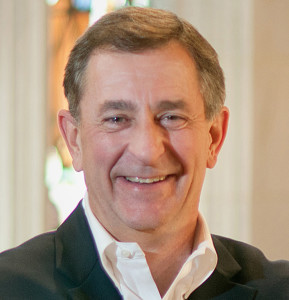The rate of Baby Boomer retirements escalated in the last 12 months, a trend that could provide a boost to some American churches and a challenge to others.
“As Boomers retire, many of them are going to go from working at a job they felt they had to do to doing things they feel called to do,” said Bill Wilson, founder and director of the Center for Healthy Churches. “They are going to have more time to give to the things they care deeply about.”
For many of them, he said, the focus of that energy will be on churches — but not necessarily the ones they were in at retirement.

Bill Wilson
“They are tired of the church games and the church drama,” he said. “They have had enough of that. They want to do something that emphasizes the good news of the gospel. And if you can’t provide that, they will find someplace that will.”
The Pew Research Center announced that a higher rate of Boomers entered retirement recently than in previous fiscal quarters and years.
“In the third quarter of 2020, about 28.6 million Baby Boomers — those born between 1946 and 1964 — reported that they were out of the labor force due to retirement,” Pew said in a Nov. 9 summary of U.S. labor force data. “This is 3.2 million more Boomers than the 25.4 million who were retired in the same quarter of 2019.”
The Pew study does not mention the impact this trend might have on communities of faith, but Wilson said enough is known about Boomers and their preferences that churches should be preparing for their arrivals or departures.
Boomers generally are known to be financially secure and eager to get involved in impactful ministry in their retirement years. “This is a chance to offer Boomers a meaningful way to invest their time and money into something that is truly transformative,” he said.
“This is a chance to offer Boomers a meaningful way to invest their time and money into something that is truly transformative.”
Many of them have solid religious beliefs and practices. In a previous study, Pew found 38% of Boomers attend religious services at least weekly and another 35% do so once or twice a month. That study also revealed that religion is “very important” to 59% of Boomers and 69% of them are “absolutely certain” of their belief in God.
It’s why many of them are not content with solely vacation-style retirements. “You can only play golf so long before you get tired of it. They want meaning in how they spend their time,” Wilson said.
That actually makes Boomers similar to Millennials and younger Americans who are known to be attracted to faith groups that serve local communities, engage in social activism and avoid toxic charity, he added. “Boomers, like young adults, are not going to come and just sit in the pew to be part of a club.”
And like Millennials, Boomers will leave congregations that fail to provide them with meaningful ministry experiences. It is not enough to have good programs and beautiful facilities to keep Boomers in their seats after retirement, Wilson said.
“The problem is that many of our churches have not quite made that shift in thinking. We still have an attractional model in mind.”
Many Boomers are joining megachurches because they are “fed up with church busy work” and see the new surroundings as transformational, Wilson said, suggesting that smaller congregations must make those adjustments, keep clear of attractional gimmicks and above all else get in touch with the ministry they are called to do in their contexts.
“The churches that are going to thrive are the ones that get clear about their own sense of mission.”
“The churches that are going to thrive are the ones that get clear about their own sense of mission — why they are here — and to simplify what they do. In this way they can be more nimble and better able to pivot more quickly.”
Some congregations may feel intimidated by the prospect of making that shift, but they need look no further than their actions during the COVID-19 pandemic to see they can do it, Wilson added.
“I think churches will come out of the virus and see how they pivoted from in-person worship to online worship in a short time. And if we can do that, what else can we do? The great lesson from 2020 is our churches are much more resilient and able to adapt in a crisis than we thought they were.”


